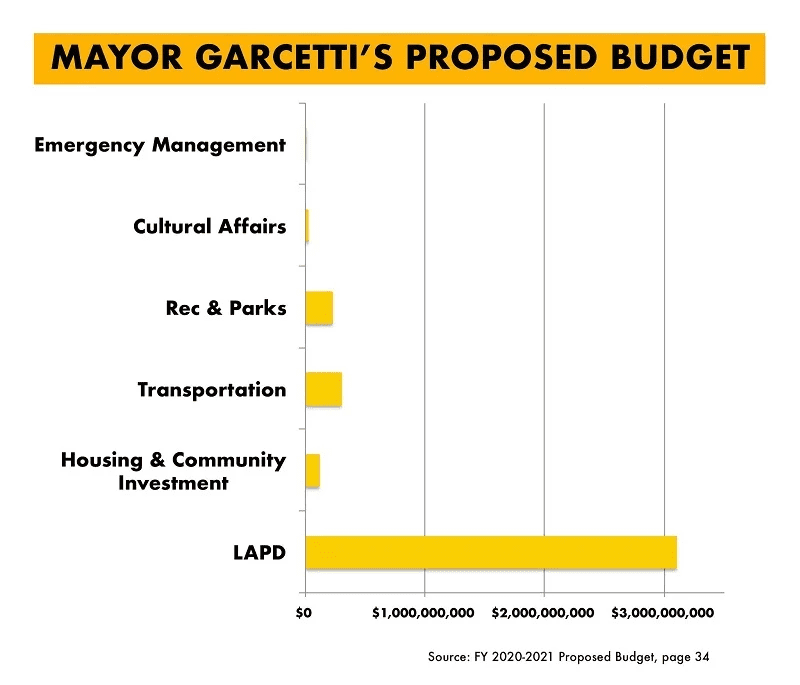What “Defund the Police” Actually Means

Calls for police reform in the U.S. have come loud and clear following the murder of George Floyd on May 25th. However, this is far from the first time politicians and police forces have faced a moment like this. Police brutality has gone unchecked and uninformed in America for a long time. Statistics show that police violence is worse here than in most other wealthy countries, and African-Americans are disproportionately shot or brutalized by cops.
Floyd’s death was a tipping point more than it was a “wake-up call.” The Minneapolis Police Department had a long history of resisting reform, despite years of alleged civil rights violations. The officer that killed Floyd, Derek Chauvin, had at least 12 complaints filed against him in his 19-year career as an MPD officer, yet was never disciplined until he murdered Floyd on the street. Floyd’s death reignited questions of whether or not reforming police departments were possible, leading some to call for the police to be “defunded.”
The idea of defunding the police is controversial but often misunderstood. So what does this rallying cry mean exactly, and why is it gaining traction?
What Does “Defund The Police” Mean?
Criminal justice reform advocates have called for police defunding for decades, but amid the nationwide protests, the concept has come into the spotlight. Defunding the police isn’t exactly as simple as it sounds. Supporters of the idea aren’t calling for total anarchy or lawlessness, despite what critics say.
Instead, defunding the police is a catch-all phrase that basically means redirecting police funding toward other more effective, non-confrontational initiatives. Much of the work done by police does not require the intervention of an armed officer, so the defunding movement calls for other professionals, like mental health experts or EMTs, to answer emergency calls instead.
For instance, one study from the Treatment Advocacy Center suggested that more than 20 percent of police’s time is spent responding to and handling calls about people with mental illnesses. However, police encounters with those struggling with unchecked mental illnesses often escalate. The Washington Post found that upwards of 25 percent of police shootings involve someone with an “acute mental illness.”
So defunding the police is not about destroying any policing measures in the country, it’s about fundamentally rethinking how and why we police.
What Police Budgets Look Like
A backbone of defunding arguments is that many major cities have excessively high police budgets. The Los Angeles police budget garnered attention this week after L.A. Mayor Eric Garcetti proposed more than $100 million in cuts, but many were stunned to learn how much remained in the LAPD’s coffers.

Other major cities have similarly disproportionate spending.
Budget hearings begin Monday morning.
Here’s a quick sampling of how your money is proposed to be spent. pic.twitter.com/zrxz4zs9it
— Ryan Dorsey (@ElectRyanDorsey) June 5, 2020
Defunding police allows cities to reallocate some of that money to housing projects, homelessness services, infrastructure repairs, and more. Coupled with non-violent, community-based policing measures, advocates for defunding believe that overall, crime would decrease and the average standard of life would increase.
Plus, these city budgets come from taxpayer money. Protests in recent weeks have shown that many major cities have highly militarized police forces, and critics question whether taxpayer money should be used for things like riot gear and tanks.
Why Defund Instead of Reform?
Many cities are grappling with the fact that police reform has been resisted and is ineffective. Very little has changed over the past few years, hence why we still struggle with police brutality in this country. Following the 2014 shooting of Michael Brown in Ferguson, Missouri, which also sparked national protests and outrage, more departments mandated that officers wear body cams.
The idea was that officers would less likely be to engage in violence while being recorded, and the footage could help keep officers who step out of line accountable for their actions. However, almost nothing changed with the introduction of widespread body cams, according to the New York Times.
After trying and failing to institute police reforms for years, the Minneapolis City Council announced its intention to disband the MPD. The MPD resisted any meaningful reform for so long largely thanks to Bob Kroll, the head of the Minneapolis police union. According to former Minneapolis Mayor R.T. Rybak, Kroll, who has a long record of disciplinary infractions and the union, were the main forces blocking reform. As a result, Minneapolis felt that the only viable option was to disband the police department and rethink safety practices.
Reform is also often expensive. When the Department of Justice recommended reforms to the Ferguson PD, the city said the costs of reform could bankrupt Ferguson. Advocates for defunding question whether pouring more millions into dysfunctional departments is the right use of funds. It remains to be seen if any cities will follow Minneapolis’s lead, but it sets an interesting precedent if other cities feel that police unions are unwilling to work toward reform.
The Bottom Line
Defunding the police is a nuanced, complicated issue that can’t be fully explained in three words. The first step to understanding the calls for defunding is understanding what defunding actually entails, especially since there’s more under the surface than the rallying cry entails. Very few mainstream politicians have voiced support for defunding, and presidential candidate Joe Biden is pushing for a $300 million reform plan.
However, the idea is gaining traction among activists, and the peaceful protests around the country have yet to die down, nearly three weeks after George Floyd’s death. Efforts to defund may ultimately fall on deaf ears, but it’s clear that at this particular moment, people are starting to listen.
See Also: Black Lives Matter. Here’s Where You Can Donate to Support









